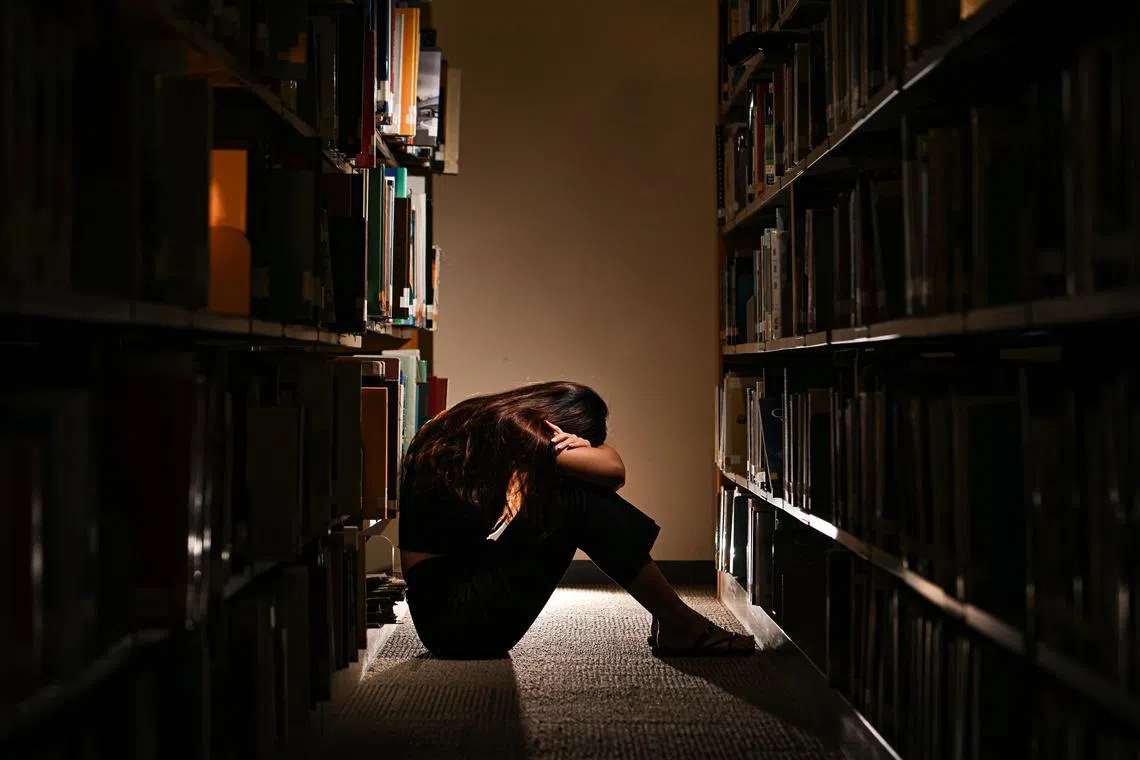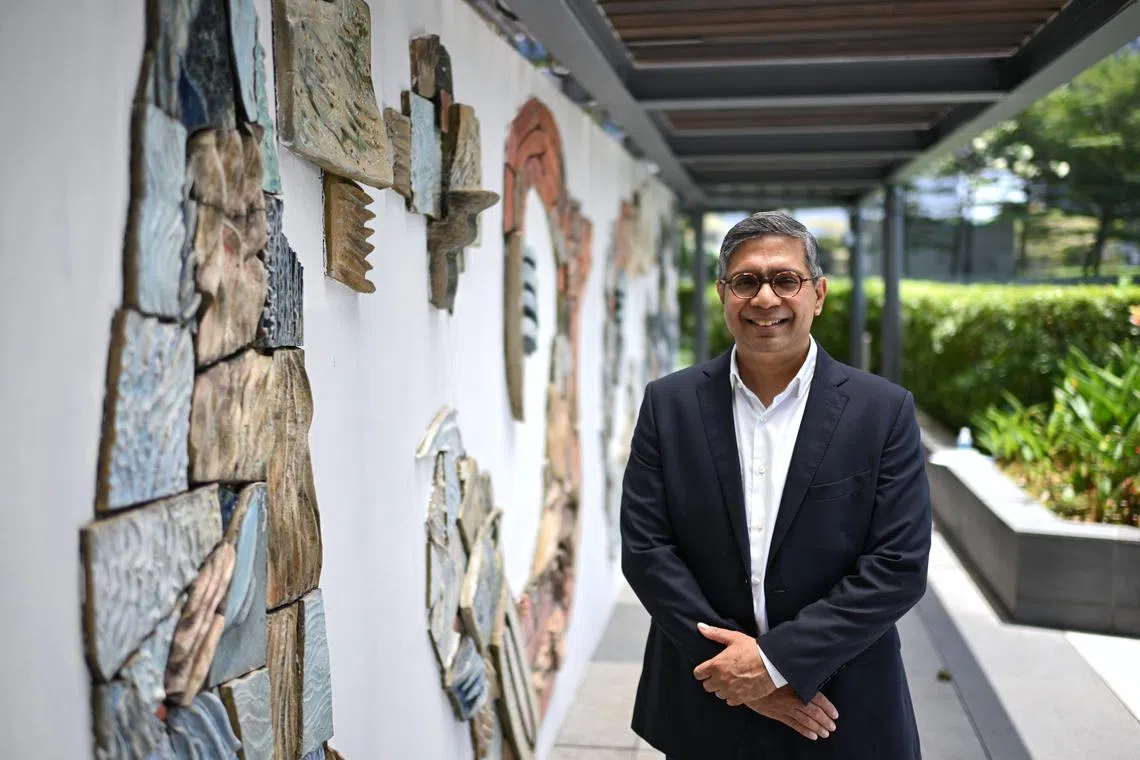Her father went to jail when she was only 9, but she made it to university with some help
Sign up now: Get ST's newsletters delivered to your inbox

Recommendations on breaking the cycle of intergenerational offending, as well as preventing substance abuse and sexual offending, were announced at the symposium.
PHOTO ILLUSTRATION: ST FILE
SINGAPORE – Hazlina (not her real name) was only nine when her father was jailed for six years for drug-related offences.
The eldest of eight siblings was left without a role model as her mother, a housewife, began working all the time to support the family.
Her school grades suffered, and she failed all four subjects from Primary 3 to Primary 5.
At parent-teacher meetings, which her parents could not attend, she would compare herself with her classmates.
She felt jealous when she saw how invested their parents were in how they were doing in school.
Hazlina was speaking to The Straits Times on the sidelines of a symposium on Wednesday about supporting young offenders and at-risk youth
At the event, recommendations on breaking the cycle of inter-generational offending, as well as preventing substance abuse and sexual offending, were announced.
“I kind of hated my own family back then, and I thought, ‘Why is it so easy for other kids to study? They can have their own room, they can have their own study table’,” she said.
But when she was in Primary 6, Hazlina realised she had to get her act together. She opened up to two of her teachers, who became the role models she needed.
“They were very loving, very caring. So that motivated me to put in the work to study because they were so invested to support me, and I felt that,” she said.
When her dad was incarcerated, Hazlina and her family also received help from NeuGen, a charity that supports former offenders and their families.
She received mentoring, tuition and a bursary which helped her pull through school and get to university.
“When I just entered university I was concerned about whether I could handle multiple part-time jobs, but thankfully, because of the bursary, I didn’t need to work (many) part-time jobs. I could focus on my studies,” she said.
Now 23, Hazlina has graduated from her sociology course and is working in the non-profit sector.
ST also spoke to experts about underlying reasons behind sexual and drug offences, and how to curb them.
On sexual offending, Dr Majeed Khader, chief psychologist at the Ministry of Home Affairs, said key risk factors among young sexual offenders include a sense of loneliness, dysfunctional family backgrounds and exposure to pornography.
“They’re young, so it’s hard for them to have the insight to understand that this is not the real world,” he said.
“People you see in porn are not like real people, because there is no consent in porn, and it is degrading to women. There’s also a lot of aggression. So they watch it and they think this is real life. And sometimes they act it out in real life.”
He said many young sexual offenders he sees resort to offending because of maladaptive coping techniques.
Some programmes aim to teach them how to cope with difficulties, loneliness, stress and arousal at a time when their bodies and brains are developing.

Dr Majeed Khader, chief psychologist at the Ministry of Home Affairs.
ST PHOTO: SHINTARO TAY
Dr Majeed added that those as young as primary school pupils may be getting access to pornography, and to address their curiosity, there should be forums for them to ask questions, such as during school talks.
He said it is also important to have parents broach the subject with their children, or risk letting the Internet and pornography become their teachers.
Parents, for example, can prompt their children to think about consent when a sex scene comes on television, he said.
Ms Gwen Ho, programme head for Integrated Service Provider SHINE Children and Youth Services – which was appointed by the Ministry of Social and Family Development to run programmes for young offenders – helps young people who are placed in SHINE’s Youth Enhanced Supervision (YES) programme after they are arrested for drug use.
She said youth who are not meaningfully engaged in work or studies tend to be more susceptible to drug use.
She links up these youth with interest groups, or helps them find jobs.
Young people may also be influenced by their partner to use drugs, or do so in order to fit in with their peers, she said.

Ms Gwen Ho, programme head for ISP (Integrated Service Provider) at SHINE Children and Youth Services.
ST PHOTO: SHINTARO TAY
In such cases, she nudges them to think of someone who can provide them with love without influencing them to take drugs.
Caseworkers also hold counselling and family sessions with young drug offenders, to encourage their parents to understand their motivations for consuming drugs.
Young people tend to be more motivated to stop drug use if they can see how their actions affect their loved ones, she said. Otherwise, they might feel it is all right to continue taking drugs as long as they do not get caught.
“I always tell my youth to not be afraid to tell others about their weakness because no one’s perfect,” she said. “Ask for help from a trusted parent or friend. If they can’t help you resolve it, they can at least accompany you to seek help.”
Ms Ho added that young offenders get a chance to start over with the YES programme, which allows them to avoid being charged in court.
On society’s perceptions of young offenders, she said: “Give them a chance, don’t treat them as bad kids. Young people care about what people think of them – if others think they’re bad kids, they’ll start to believe it. We need to give them a way to contribute and see their value to society.”


